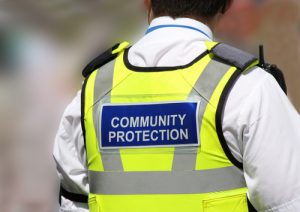
U.S. Sen. Tim Scott (R-SC) on April 5 cosponsored a bipartisan bill aimed at supporting law enforcement in more effectively responding to people suffering a mental or behavioral health crisis.
“As the first ones on the scene, America’s law enforcement officers must be ready to respond to crises of all types,” Sen. Scott said. “Equipping them with the necessary training and resources to ensure they can do their jobs and keep our communities safe is just plain common sense.”
The Law Enforcement De-escalation Training Act of 2022, S. 4003, would amend the Omnibus Crime Control and Safe Streets Act of 1968 to authorize $70 million in annual grant funding for training on alternatives to use of force, de-escalation and mental and behavioral health and suicidal crises, according to a bill summary provided by Sen. Scott’s staff.
“I have been calling for this type of reform for years and I am glad to be a part of this bipartisan group working to finally make it happen,” said Sen. Scott, who cosponsored the bill alongside six other original cosponsors, including U.S. Sens. Bill Cassidy (R-LA), Shelley Moore Capito (R-WV), and Sheldon Whitehouse (D-RI), as well as bill sponsor U.S. Sen. John Cornyn (R-TX).
If enacted, S. 4003 would require the U.S. Department of Justice’s Office of Community Oriented Policing Services to develop curricula in the training topics, or identify existing curricula, in consultation with law enforcement, mental health organizations, family advocacy organizations, and civil liberties groups, among other stakeholders, according to the bill summary.
Additionally, S. 4003 would require the National Institute of Justice and the U.S. Government Accountability Office to evaluate the implementation of the program and the effect of the training to ensure that the curricula have a tangible impact on law enforcement encounters with people in crisis, and identify possible changes that would further improve outcomes, the summary says.
The legislation has been endorsed by a multitude of organizations, including the National Criminal Justice Association, the American Psychological Association, the National Alliance on Mental Illness, the Fraternal Order of Police, the College of Psychiatric and Neurologic Pharmacists, the American Association on Health and Disability, the Anxiety and Depression Association of America, and the National Association for Rural Mental Health, among others.



